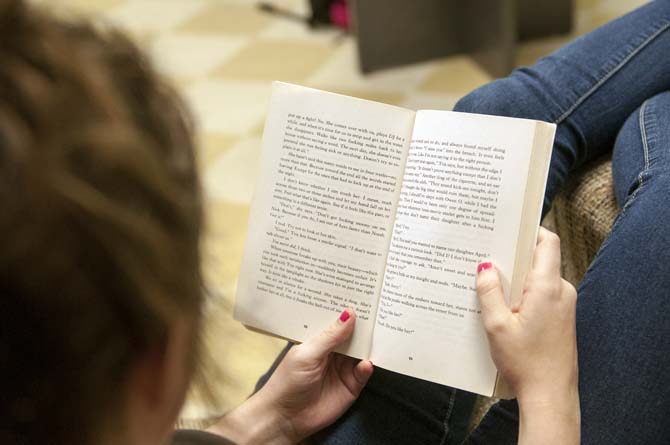If you could read 600 words per minute, you could read this entire column in about 60 seconds.
With an upcoming app called Spritz, you can learn to read at these speeds and then some. Before you gasp in awe at the progression of technology and the human mind, take a second to think about what this means for future generations and their attention spans.
We want the newest, most high speed technology we can get our greedy little hands on. I’m guilty of it, too. You bet I went on the Spritz website and tested how fast I could read in a minute. But that’s all it should be — a fun little test.
As college students, we are constantly searching for the easiest way out of tedious reading assignments and will probably ignore the dangerous implications of this app, leading our society to be entranced by this speed-
reading frenzy. As hard as it might be to resist the urge to Spritz your way through British Lit, try to see why it may be better to pace yourself instead.
CNN reported that a psychologist at the University of Victoria is critical of this speed reading method because of its counter-productivity. This opinion is spreading among scientists who study the rate of reading to comprehension but unfortunately had not been properly considered by the general public.
The website demo starts you off at 250 words per minute, a little faster than the average reading speed. We can increase our words per minute as our eyes begin to register words more quickly. But at a certain point, we are just seeing words and not comprehending sentences.
When this app falls into the hands of users, it will change how we define reading.
The Spritz website says the app will eventually work on multiple platforms like e-mail, social media and even outdoor signs. It’s all a little too robotic for me. I don’t want a program reading me my e-mails from grandma at lightning speed.
Our culture is moving in the direction of hyperspeed and calling our diminishing attention spans successful progress. Our minds were not designed to retain information presented at a speed of 600-plus words per minute. We can train them all we want, but there is a certain point where we need to absorb the words flashed before our eyes and more importantly, appreciate them.
It might be cool to say we can read up to 1,000 words per minute, but how many of those words are we actually retaining in our memories? The entire concept of speed reading implies that reading is a chore and not a privilege.
A study conducted by the U.S. Department of Education and the National Institute of Literacy found that 14 percent of the American population can’t read. Those who have the ability to read should stop taking it for granted.
Reading for pleasure could potentially turn into a competition instead of the peaceful escape that should be. Our kids will be reading the entire “Harry Potter” series in one sitting and seeing who of their friends can do it the fastest.
“Hey Brad, and I read all of ‘Prisoner of Azkaban’ in two hours! Beat that!”
“Seriously? I read the entire Lord of the Rings trilogy in one hour, sucker.”
Brad is a brat, and I don’t want my kids to be faced with any Brads of their generation, let alone become a Brad. But with the way things are looking, future generations may increase their demand for instant gratification.
Books need to be read and appreciated. Spending only a few hours on a classic novel doesn’t allow readers enough time to grasp the messages and understand their value. We will lose our ability to be patient and turn into a population of elitist Brads with no sense of appreciation for the words we are so swiftly skimming.
Our attention spans need to be exercised, not eliminated.
Annette Sommers is a 19-year-old mass communication sophomore from Dublin, Calif.
Opinion: Speed reading has negative outcomes
March 13, 2014
Spritz is an app that emphasizes speed reading, but some argue it comes at the cost of comprehension.






